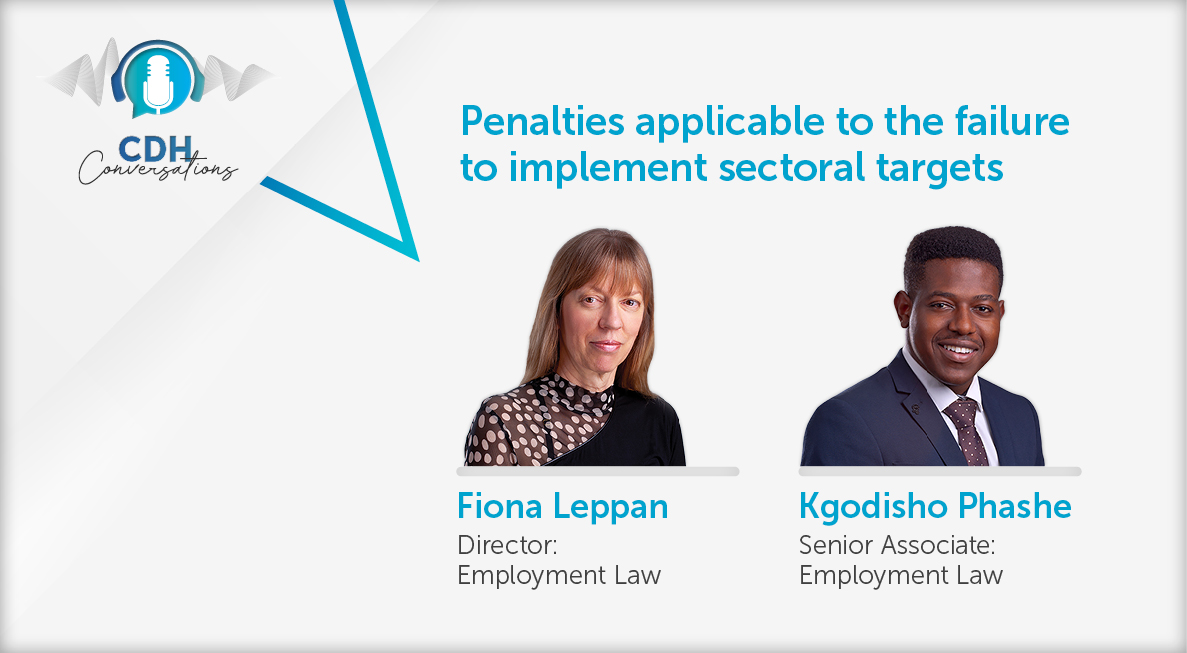A cautionary tale for all financial service providers
The Financial Advisory and Intermediary Services Act, No 37 of 2002 (Act) provides that all FSPs have an obligation to satisfy themselves that their representatives are “competent to act and comply with” the requirements as determined by the registrar of FSPs. Of relevance here, the representative must meet the “fit and proper requirements” which deal with the honesty and integrity of the representative, such as whether the representative has been found guilty of a transgression involving “dishonesty, negligence, incompetence or mismanagement”. However, the transgression must be “sufficiently serious to impugn the honesty and integrity of the FSP or the representative”. In the event that a representative no longer complies with these requirements, their authority to act on behalf of the FSP must be withdrawn and their name must be removed from the register of representatives.
Under the current case, Odinfin (Pty) Limited (Odinfin) was an authorised FSP in terms of the Act and Reynecke was employed by Odinfin to provide financial services to its clients, and was thus employed as its representative in terms of the Act. However, Reynecke was dismissed for attending a training course with another FSP (Second FSP) without informing Odinfin, rather claiming that he was providing services to a particular client of Odinfin. The dismissal was based on “dishonesty and/or competing with the employer and/or conflict of interest”. Thereafter, and without notice to Reynecke, Odinfin took steps to have Reynecke’s name removed from the register. This caused Reynecke to be suspended from his employment with the Second FSP, who had subsequently employed him. As a result, Reynecke sought to recover his loss of income from Odinfin.
Odinfin neither informed Reynecke of its intention to have his name removed, nor provided reasons for its decision to do so. In fact, Odinfin denied that it had debarred Reynecke, claiming it had merely reported the findings of Reynecke’s disciplinary hearing during which he was dismissed. Despite this claim, when Reynecke launched proceedings to have the debarment set aside, Odinfin initially opposed the proceedings, only withdrawing its opposition at (what the court viewed) a very late stage in the proceedings.
Reynecke alleged that a decision taken to remove a representative from the register constitutes an administrative act under the Promotion of Administrative Justice Act, No 3 of 2002 (PAJA). Therefore, the argument was that Reynecke was entitled to a fair administrative action and as he should have been notified of the nature and purpose of the decision and given an opportunity to be heard before the decision was taken.
It was said that as Odinfin did not notify Reynecke of the decision or give him a reasonable opportunity to be heard, it breached the statutory duty imposed by PAJA to ensure a fair administrative process.
Odinfin conceded, and the court agreed, that its actions fell under PAJA. For a fair process to be followed, an informed decision must be taken regarding whether the dishonesty in question is sufficiently serious to justify the removal of a FSP representative’s name from the register. Furthermore, the representative must be notified and given an opportunity to be heard. However, as this was conceded by Odinfin, the question before the court was whether the violation of public law could attract a private law damages claim.
The court stated that Odinfin’s failure to follow a fair process could not automatically lead to its liability for the damages sustained by Reynecke (being his loss of income while suspended from the second FSP). The creation of a damages claim would depend on whether the particular circumstances demanded such a sanction. In other words, whether the failure could be said to be wrongful and unlawful.
In this regard, the court was critical of Odinfin’s actions in not following a fair administrative process, and, as these actions prevented Reynecke from acquiring any other remedy or coming to court earlier to prevent the damage, the circumstances demanded that Reynecke be awarded damages.
Thus, this case is a warning to all FSPs to behave responsibly when taking steps to remove a representative from the register, by making sure an informed and considered decision is taken, that the relevant representative is notified of the FSP’s intention and is given an opportunity to be heard.
Written by Eugene Bester and Maud Hill
The information and material published on this website is provided for general purposes only and does not constitute legal advice. We make every effort to ensure that the content is updated regularly and to offer the most current and accurate information. Please consult one of our lawyers on any specific legal problem or matter. We accept no responsibility for any loss or damage, whether direct or consequential, which may arise from reliance on the information contained in these pages. Please refer to our full terms and conditions. Copyright © 2026 Cliffe Dekker Hofmeyr. All rights reserved. For permission to reproduce an article or publication, please contact us cliffedekkerhofmeyr@cdhlegal.com.
Subscribe
We support our clients’ strategic and operational needs by offering innovative, integrated and high quality thought leadership. To stay up to date on the latest legal developments that may potentially impact your business, subscribe to our alerts, seminar and webinar invitations.
Subscribe




